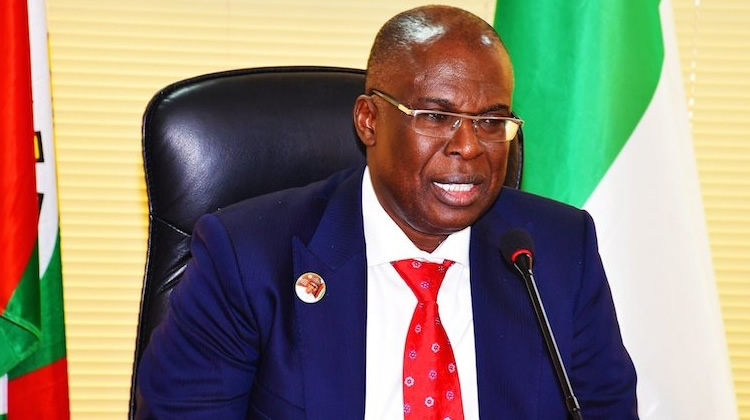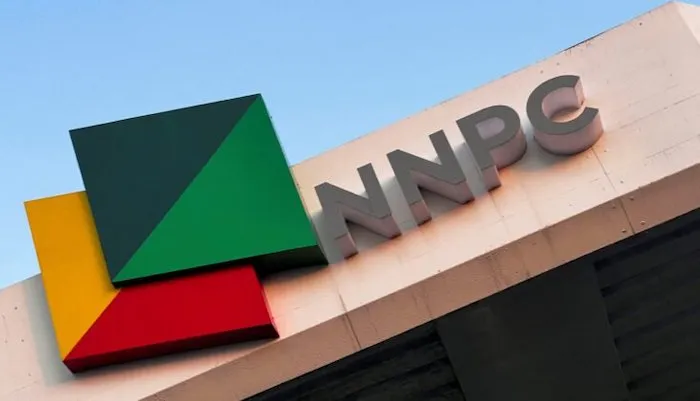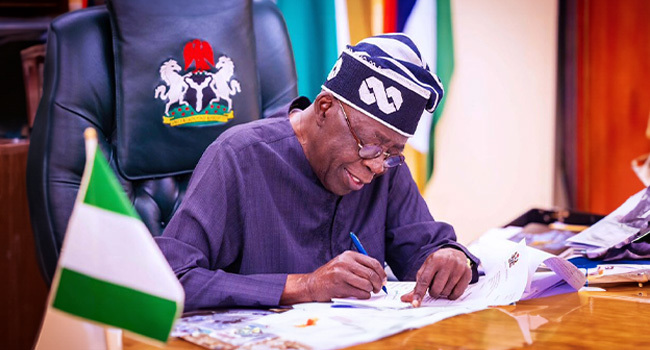The nation
Domestic gas optimisation key to energy transition — Sylva

The Federal Government said it would optimise the country’s abundant gas resource to achieve transition to low carbon energy sources.
Timipre Sylva, Minister of State for Petroleum Resources, said this assertion at the 2021 Society of Petroleum Engineers, SPE, Nigeria Annual International Conference and Exhibition, NAICE, on Tuesday in Lagos.
According reports, the conference has as its theme: “The Future of Energy – A Trilogy of Determinants: Climate Change, Public Health, and the Global Oil Market.”
Mr Sylva said: “The scenario being projected by some energy experts is that energy transition to low carbon energy sources would make the world a better living place with a cleaner climate.
“I believe so too, likewise the Government of Nigeria.”
He, however, faulted the assumption that the transition to the use of low carbon energy solutions must happen simultaneously across the globe.
The minister noted that those pushing for the move failed to take into account the different socio-economic, political and developmental peculiarities of individual nations.
“Let me state categorically that our approach towards the climate-change-net-zero-emission debate is to optimise the use of our abundant gas resource domestically as a transition fuel option towards meeting our Nationally Determined Contributions on climate change.
“As a government, we are determined to encourage more penetration of natural gas and its derivatives for domestic utilisation, power generation, gas-based industries and propulsion in all aspects of the national economy.
“This would in a fundamental manner address the great challenge posed by volatile oil market, the environmental issues and public health concerns,” said Silva.
He said it was obvious that the world was migrating from a fossil fuel-based economy to renewable energy.
This, he added, had engendered a corresponding decline in hydrocarbon including possible divestiture in the sector as deliberate frameworks were being championed to discourage extraction of carbon-laden resources.
The minister noted that the COVID-19 pandemic had further exacerbated the investment decline.
Mr Sylva said the government was, therefore, collaborating with its global partners in exploring policies, technologies and investments.
He said this was aimed at addressing the challenge of migrating from carbon dependent fuels in order to meet its commitment to the Paris Agreement.
“It is our belief that the distinguished Society of Petroleum Engineers (SPE) will be in the forefront of our quest to achieve the desired balance of clean environment, safe public health and a renewed global oil market.
“This SPE Annual International Conference and Exhibition will be an appropriate platform to bring to the front-burner the critical discussions that would forge a robust and implementable clean energy solutions pathway for Nigeria,” the minister said.
The Chief Executive Officer of Seplat Petroleum Development Company Plc, Roger Brown, said the company was committed to the aspirations of Nigeria and would continue to invest towards the objective.
Represented by Effiong Okon, Executive Director of Operations, Seplat, Mr Brown, commended the government for initiating projects and programmes to boost gas development in Nigeria.
He said the programmes included the National Gas Expansion Programme, National Gas Transportation Network Code and Nigeria Gas Flare Commercialisation Programme.
According to him, the construction of infrastructures such as the NLNG Train 7 Project, Ajaokuta- Kaduna-Kano, AKK, and the Obiafu-Obrikon-Oben, OB3, pipelines will help deepen gas utilisation in Nigeria.
Mr Brown said Seplat would continue to make investments to support the vision of the government, adding that the company was currently supplying 30 per cent of gas to the electricity sector.
NAN
Headlines
NNPCL reveals decision not to sell Port Harcourt refinery

The Nigerian National Petroleum Company Limited, NNPCL has officially decided not to sell the Port Harcourt Refining Company.
NNPCL has, instead said it is committed to conducting an extensive rehabilitation of the facility and ensuring its continued operation.
During a company-wide town hall meeting held at the NNPC Towers in Abuja, Bayo Ojulari, the Group Chief Executive Officer of NNPC Ltd, announced the decision regarding the future of the nation’s most significant state-owned refining asset, putting an end to weeks of speculation.
A statement by NNPCL reads, “The Nigerian National Petroleum Company Limited has officially ruled out the sale of the Port Harcourt Refining Company, reaffirming its commitment to completing high-grade rehabilitation and retention of the plant.
“The ongoing review indicates that the earlier decision to operate the Port Harcourt refinery, before full completion of its rehabilitation, was ill-informed and subcommercial.
”Although progress is being made on all three, the emerging outlook calls for more advanced technical partnerships to complete and high-grade the rehabilitation of the Port Harcourt refinery.
”Thus, selling is highly unlikely as it would lead to further value erosion.”
Headlines
Tinubu appoints Olumode Adeyemi as Federal Fire Service boss

President Bola Tinubu has approved the appointment of Adeyemi Olumode, as the new Federal Fire Service, FFS, Controller-General.
The appointment was announced on Wednesday on behalf of the Federal Government by retired Maj.-Gen Abdulmalik Jubril, Secretary of the Civil, Defence, Correctional, Fire and Immigration Services Board, CDCFIB.
Jubril said the appointment followed the retirement of the current Controller-General, Abdulganiyu Jaji, on August 13.
Jaji is retiring upon attaining the age of 60 by August 13.
Jibril further disclosed said that Adeyemi Olumode is qualified for the position, having attended and passed all mandatory in-service training, Command courses as well as other courses within and outside the country.
“He brings a wealth of experience to his new role, having transferred his service from the FCT Fire Service to the Federal Fire Service and grown to the rank of DCG in the Human Resource Directorate of the Service Headquarters.
“He has served in various capacities and is equally a member/fellow of the following professional associations including Association of National Accountants of Nigeria, ANAN, Institute of Corporate Administration of Nigeria, Institute of Public Administration of Nigeria and Chartered Institute of Treasury Management of Nigeria.”
Headlines
Tinubu arrives Katsina to receive Buhari’s body for burial

President Bola Tinubu, on Tuesday arrived in Katsina to receive the remains of the former President Muhammadu Buhari, who passed away in London on Sunday at the age of 82.
-

 Headlines4 years ago
Headlines4 years agoFacebook, Instagram Temporarily Allow Posts on Ukraine War Calling for Violence Against Invading Russians or Putin’s Death
-

 Headlines4 years ago
Headlines4 years agoNigeria, Other West African Countries Facing Worst Food Crisis in 10 Years, Aid Groups Say
-

 Foreign4 years ago
Foreign4 years agoNew York Consulate installs machines for 10-year passport
-

 News1 year ago
News1 year agoZero Trust Architecture in a Remote World: Securing the New Normal
-

 Entertainment3 years ago
Entertainment3 years agoPhyna emerges winner of Big Brother Naija Season 7
-

 Headlines2 years ago
Headlines2 years agoNigeria Customs modernisation project to check extortion of traders
-

 Entertainment2 years ago
Entertainment2 years agoMovie download platform, Netnaija, announces closure
-

 Economy2 years ago
Economy2 years agoWe generated N30.2 bn revenue in three months – Kano NCS Comptroller







